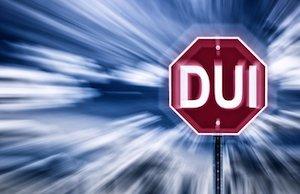Drivers' Rights and the DUI Stop
 After a driver is pulled over and before he is officially arrested for driving under the influence (DUI), an Illinois police officer conducts an investigation. During this investigative period, the officer tries to determine whether her probable cause is strong enough to justify arresting the driver for a DUI.
After a driver is pulled over and before he is officially arrested for driving under the influence (DUI), an Illinois police officer conducts an investigation. During this investigative period, the officer tries to determine whether her probable cause is strong enough to justify arresting the driver for a DUI.
An Illinois police officer will typically conduct one of two investigative tests after pulling over a driver for suspicion of a DUI. An officer may conduct a field sobriety test a portable breath test, also known as the “Breathalyzer test.” During the field sobriety test, the officer asks the accused to perform a variety of actions that illustrate the accused’s level of mental and motor control. Requested actions may include following the officer’s fingers with one’s eyes in a horizontal motion, walking the line and being asked to turn abruptly, or standing on one leg.
During a Breathalyzer test, a machine measures the accused’s blood alcohol content. The legal blood alcohol limit in Illinois is .08 percent. According to Illinois law, drivers have a right to refuse one or both of these tests. However, a decision to refuse such a test might not be the best option in all circumstances.
Consequences of Refusing Field Sobriety Tests
Refusing to take the test cuts officers off from getting evidence of the driver’s blood alcohol level at the time of the DUI stop. However, prosecutors can charge an individual with DUI, absent evidence of the blood alcohol level at the time of the arrest. Practically speaking, refusal to take a Breathalyzer test or different field sobriety test usually results in the officer arresting and booking the individual in a local jail.
Even then, once an individual is arrested and brought into police custody, the accused may be compelled to take a blood, urine or Breathalyzer test. In cases where a DUI-related accident led to an injury or fatality, the accused driver may be required to submit to a breath, blood or urine test at the site of the crash.
Refusal to take a breathalyzer test may have additional consequences besides inhibiting an officer’s investigation. Refusal to submit to a breathalyzer test may result in a one-year suspension of the driver’s license upon the first offense, and a longer suspension for someone who refuses to take the test multiple times.
Seeking Counsel in an Illinois DUI Case
Attorneys at Kathryn L. Harry & Associates, P.C. are trained in field sobriety and breath testing, as well as the consequences of refusing such tests. We understand that factors like poor administration of the tests, faulty equipment, and a person’s physical makeup may each affect the accuracy of the test. Please know there are time limits for appealing a DUI charge, so if you would like to contest a DUI charge, contact an experienced DUI attorney at 630-472-9700 right away.
 1200 Harger Road, Suite 830, Oak Brook, IL 60523
1200 Harger Road, Suite 830, Oak Brook, IL 60523







